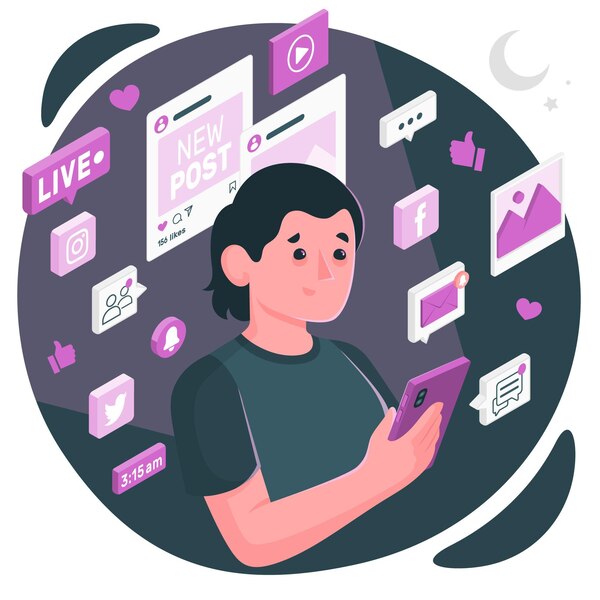Artificial Intelligence (AI) is no longer a futuristic technology, but an integral part of everyday life. Over the last decade, AI has evolved rapidly, becoming a cornerstone of innovation across various industries. One of its most transformative applications is in the creation of personalized user experiences. By leveraging AI, companies can now offer highly customized interactions, anticipate customer needs, and deliver relevant content in real-time. This article will explore the increasing role of AI in shaping personalized user experiences and how it is revolutionizing customer engagement, marketing strategies, and business growth.
Understanding Personalized User Experience
Personalized user experience refers to the process of tailoring a user’s interaction with a website, application, or service based on their preferences, behavior, and history. In the past, businesses relied on traditional methods such as demographic data to personalize interactions. However, these methods have become outdated and insufficient. Today, AI takes personalization to the next level by analyzing vast amounts of data and learning from user behavior to offer unique, dynamic experiences.
For example, when you visit an e-commerce website, AI-powered recommendation engines suggest products based on your previous purchases or browsing habits. This not only enhances user satisfaction but also increases the likelihood of making a purchase. This level of personalization improves engagement, builds trust, and creates a sense of loyalty between customers and brands.
How AI Enhances Personalized User Experiences

1. AI-Powered Recommendations
One of the most common applications of AI in personalized experiences is through AI-powered recommendation systems. These systems use machine learning algorithms to analyze user behavior and preferences, making accurate product or content suggestions. Platforms like Netflix, Amazon, and Spotify have revolutionized their services by offering hyper-personalized content recommendations to users.
For example, Netflix uses AI to suggest movies or shows based on your viewing history. This not only increases user engagement but also reduces the likelihood of users abandoning the platform in search of something new. AI recommendation engines have significantly improved conversion rates and user satisfaction in e-commerce platforms and content providers alike.
2. Chatbots and Virtual Assistants
AI-driven chatbots and virtual assistants have become essential tools for providing real-time, personalized support. These AI systems can interact with customers in a human-like manner, offering tailored responses based on the context of the conversation. This type of personalization is especially useful for customer service, as it allows businesses to quickly address customer inquiries and resolve issues without human intervention.
In addition, virtual assistants like Amazon Alexa or Google Assistant can remember user preferences, such as favorite music genres, preferred shopping lists, or daily routines. This ongoing personalization creates a more intuitive and enjoyable experience, making users feel understood and valued.
3. Dynamic Content Personalization
Content personalization is another area where AI plays a crucial role. Websites and applications use AI to analyze user behavior, browsing history, and demographic data to deliver dynamic content that is tailored to individual preferences. This includes everything from personalized news feeds on social media platforms to customized landing pages on e-commerce websites.
For instance, Facebook and Instagram use AI algorithms to analyze user interactions, such as likes, shares, and comments, to curate a personalized news feed. Similarly, e-commerce websites like ASOS use AI to dynamically display product recommendations based on the user’s browsing history.
4. Predictive Analytics for Anticipating User Needs
AI’s predictive capabilities enable businesses to anticipate customer needs before they arise. By analyzing past behavior, AI can predict future actions, allowing companies to proactively deliver personalized experiences. For example, AI-driven marketing automation tools can send personalized offers to customers at the right time, increasing the chances of conversion.
In the travel industry, AI can predict travel preferences based on past bookings and browsing history. Airlines and travel agencies use this information to send personalized vacation packages or flight deals to customers, fostering a sense of personalization and customer loyalty.
5. Customer Segmentation and Personalization at Scale
AI also enhances the ability to segment customers based on their unique characteristics and behaviors. Traditional marketing strategies relied on broad demographic categories, but AI enables companies to create highly granular customer segments that reflect more personalized attributes.
By using machine learning algorithms, companies can segment customers based on their behavior, preferences, and purchasing habits. This allows businesses to deliver targeted marketing campaigns that resonate more deeply with each individual. As a result, AI enables companies to scale their personalization efforts, reaching large audiences without sacrificing the quality of the experience.
6. Enhanced User Interfaces (UI) and User Experience (UX)
AI is also transforming the design and functionality of user interfaces (UI) and user experiences (UX). By analyzing user interactions, AI can optimize website layouts, navigation, and content placement to ensure a seamless, personalized experience. AI-driven UX optimization tools can help improve website accessibility, responsiveness, and user satisfaction.
For instance, AI can analyze where users spend the most time on a website and adjust the placement of key elements (e.g., buttons, menus, and content) to enhance usability. This results in a smoother experience for the user, as the interface adapts to their specific preferences.
7. Voice Search and Personalization
Voice search is gaining popularity, and AI is playing a significant role in enhancing the personalized voice search experience. Virtual assistants like Siri, Alexa, and Google Assistant rely on AI to understand voice commands, context, and intent. This enables users to ask questions and receive highly personalized responses.
AI algorithms can analyze previous voice search data to offer more relevant suggestions. For example, if you frequently ask your voice assistant for sports scores, it might start offering real-time sports updates as part of your daily briefing. This level of personalization adds a layer of convenience and helps foster deeper engagement with users.
The Business Impact of AI-Powered Personalization
1. Improved Customer Loyalty
AI-powered personalized experiences foster stronger relationships between customers and brands. By providing content and recommendations that align with individual preferences, businesses can enhance the user experience and build customer loyalty. A loyal customer is more likely to make repeat purchases, recommend the brand to others, and engage with the brand over time.
2. Increased Conversion Rates
Personalization powered by AI leads to more relevant and targeted offers. This can significantly increase conversion rates, as customers are more likely to respond positively to personalized recommendations. For example, e-commerce websites that utilize AI-driven recommendation engines see higher click-through rates and greater sales conversions.
3. Better Customer Insights
AI provides businesses with in-depth insights into customer behavior, preferences, and pain points. This data is invaluable for refining products, improving services, and optimizing marketing strategies. By analyzing large datasets, AI can uncover patterns that would be difficult to identify manually, leading to more informed decision-making.






